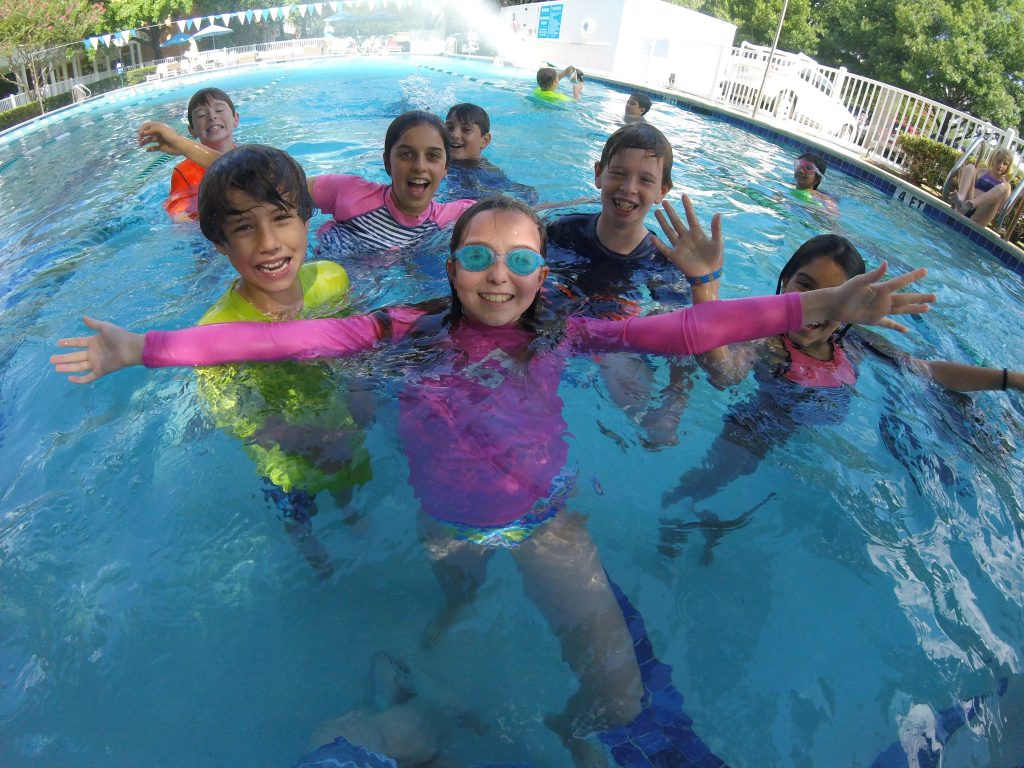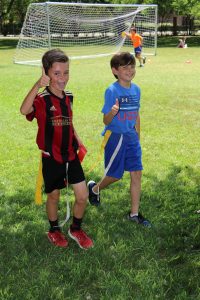This post has been sponsored by Cooper Aerobics to bring you this experience.

Cooper Camps Help Kids Develop Lifelong Skills
When it comes to a child’s happiness, most moms would boast they put their child’s happiness above all else. While this can result in immediate satisfaction, focusing on happiness only in the short term can potentially limit growth and hinder opportunities to learn through challenges long term.
The concept of “growth mindset” was the subject of a keynote speaker, David Yeager, at the 2020 American Camp Association (ACA) National Conference in San Diego, California recently. Yeager is an experimental development psychologist in the department of psychology at the University of Texas at Austin who examines the causes of and solutions to adolescent health problems, such as bullying, depression, academic achievement, cheating, trust, or healthy eating. He presented the idea of a growth mindset as the notion that abilities can grow over time, and allowing a child to understand and see this opportunity for growth is key to the child’s performance, confidence and long-term happiness.
At times we hear from parents their child doesn’t want to come back to a sport clinic. When we probe a little more into the “why” behind their child’s hesitation it typically boils down to one of two reasons:
- The child feels uncomfortable because he/she thinks they weren’t good after one practice in comparison to all of the other kids who have been coming for years.
- The child thinks the coach doesn’t like them because he/she received “coaching” or a “critique”.
Opportunity to Reframe Thoughts
We should not see these reasons of discomfort as reasons to quit, but instead as opportunities to reframe thoughts from a fixed mindset to a growth mindset. This skill will help kids long-term in life as they try new activities in school, apply for jobs and even forge social relationships:
Fixed mindset thoughts:
- Failure is the limit of my abilities.
- I am either naturally good at this or I’m not.
- I either can do it or I can’t.
- My potential is predetermined.
- Feedback and critique is personal.
Growth mindset thoughts:
- Failure is an opportunity to do better.
- I can learn to improve in anything.
- Challenges and discomfort can help me grow.
- My effort and attitude determine my ability.
- Feedback and critique means they see potential in me and they think I can do this.
Each of our Cooper youth programs includes strategies to help combat this trend of fixed mindset into more of a growth mindset thought pattern. Our camp counselors are trained in growth mindsets which equip our campers to develop lifelong skillsets well beyond their time in camps or sports.
 The power of yet
The power of yet
“I’m really good at dribbling but I can’t make free throws.”
“I’m really good at ballet but I’m not good at soccer.”
These self-limiting beliefs allow kids to believe that their potential is set and that they have specific, unchanging skills. A child may not want to participate in a game of HORSE during basketball at camp if she labels herself as “a poor shooter” and, in turn, she may miss an opportunity to grow in the skill and learn to overcome challenges. Emphasizing that the skill isn’t developed yet allows children to believe that their potential for growth is exponential. The best example for kids to understand is reminding them that they didn’t just decide one day as a baby to start walking. They had to take a step or two and fall a lot before they got the hang of walking. We like to add humor in there and ask them to try to think of a world of adults who all decided after the first time they tried to walk and fell and just thought, “Well, I guess I am just meant to crawl the rest of my life.” This kid-friendly analogy usually resonates and encourages them to keep working on that new skill.
Praise the journey, not the result
At camp, we ask kids to participate in a wide variety of sports and games that they may not have heard of or played before (Zombie tag, anyone?). Kids can sometimes get frustrated when they are used to succeeding in athletics and find themselves at the end of the pack with a new game. Kids today see through the value of a participation trophy or a “good try.” Instead, we can reframe the language to appreciate true accomplishments such as “I really liked that you continued to play hard even after your first flag got pulled” or “I really liked that new strategy you tried to get around the tagger.” You can take that a step further by asking them how they could tweak their strategy next time to advance further in the game. This also trains them to self-assess so someday when you aren’t there to prompt them, they are well versed in how to adapt after a failed attempt.
Acknowledge the challenge
Preparing your child for the difficulty of the task ahead allows the child to set realistic expectations about more than just the outcome. Kids come to camp expecting to make friends; however, kids who have been at the same school their entire lives may not recall the time it can take to make those friends. At Cooper, we emphasize the importance of getting out of your comfort zone to make friends while acknowledging it takes time. The best way we tackle this is at the beginning of camp to let them know there will be some things we try at camp that are challenging but that is completely normal! This allows campers to not be caught off guard when challenge comes their way. If addressed before the discomfort occurs it lets them know this was already to be expected and they still belong because others are facing the same challenge with them and we can tackle it together.
Helping your child develop lifelong skills all starts with the right mindset. Register for Cooper Camps at Cooper Fitness Center, starting June 1 for ages 5-13. Limited summer camp spots are still available for kids (ages 5-7) and youth (ages 8-13) camp, so reserve your camper’s spot today!
 Riley Uhl is the Camps and Youth Programs Manager at Cooper Fitness Center. Riley studied Health and Exercise Science at the University of Oklahoma and plays an integral role in the Cooper Youth Programs.
Riley Uhl is the Camps and Youth Programs Manager at Cooper Fitness Center. Riley studied Health and Exercise Science at the University of Oklahoma and plays an integral role in the Cooper Youth Programs.
Cooper Fitness Center has offered youth programs for more than 25 years and features a variety of year-round programming for kids, including basketball, swimming, tennis, boxing, martial arts, soccer, summer camp and other seasonal offerings. Download our Youth Programs Guide and register at cooperyouth.com/Dallas.
WEBSITE :: FACEBOOK :: TWITTER :: INSTAGRAM













